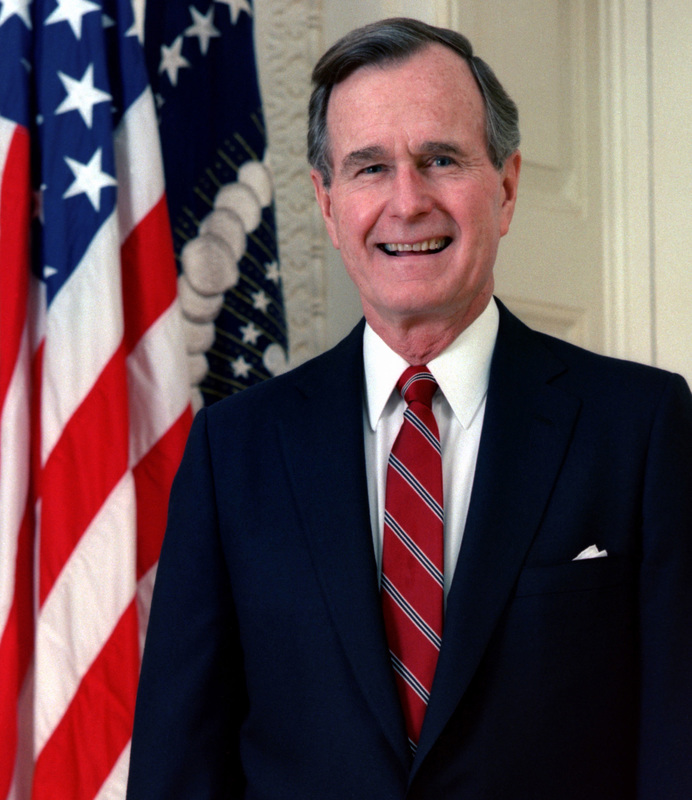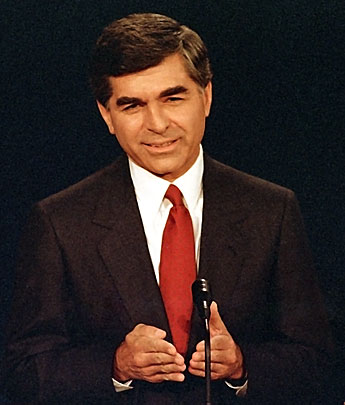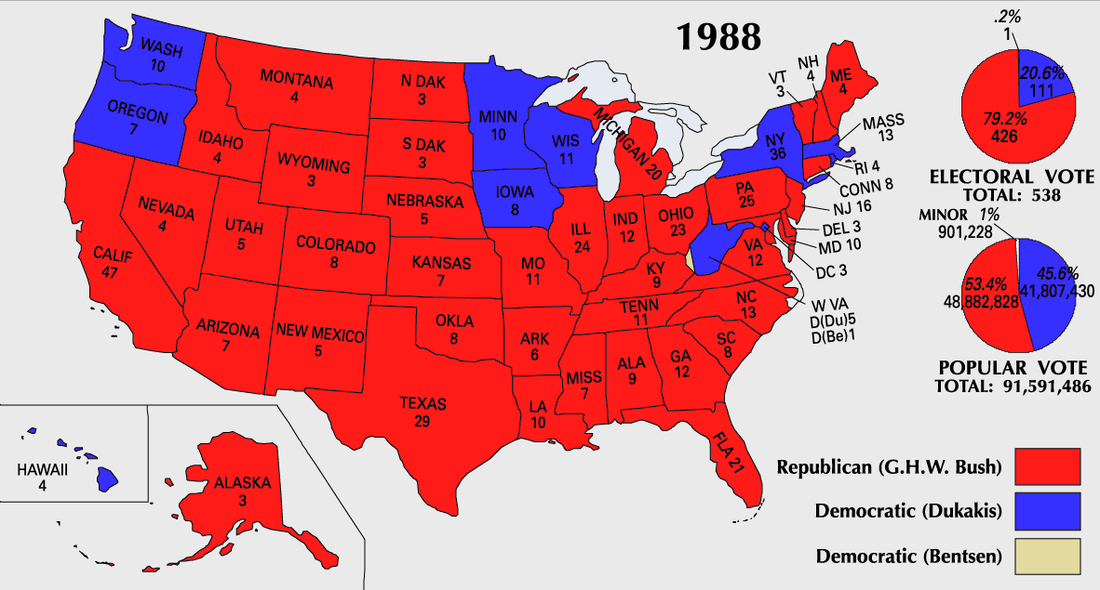Introduction
President Reagan had used his second term in office to work more closely with the Soviet Premier, Mikhail Gorbachev, to forge a relationship of trust and mutual respect. Under President Reagan the Soviet culture had begun to show changes due to strategic military and economic pressures. The programs of perestroika and glasnost had opened up the economies of the Soviet satellites and increased transparency in government operations and military holdings in the USSR. Hoping to capitalize on this wave of momentum, Vice President George H.W. Bush ran for president in 1988 against the Democratic Governor of Massachusetts, Mike Dukakis. Bush, a two term Vice President and former director of the C.I.A. used his background and experience in negotiating with the Soviets to bring an end to the Cold War.
President Reagan had used his second term in office to work more closely with the Soviet Premier, Mikhail Gorbachev, to forge a relationship of trust and mutual respect. Under President Reagan the Soviet culture had begun to show changes due to strategic military and economic pressures. The programs of perestroika and glasnost had opened up the economies of the Soviet satellites and increased transparency in government operations and military holdings in the USSR. Hoping to capitalize on this wave of momentum, Vice President George H.W. Bush ran for president in 1988 against the Democratic Governor of Massachusetts, Mike Dukakis. Bush, a two term Vice President and former director of the C.I.A. used his background and experience in negotiating with the Soviets to bring an end to the Cold War.
|
|
|
Campaign Video Prompts
Use your above responses and the electoral college map below to answer the following prompts.
- Create a T-Chart and track the "Mood" of both campaign ads.
- Create a T-Chart and track the "Tone" of both campaign ads.
- Summarize the message of each campaign ad.
- What was the most effective image/argument/phrase/word from each campaign ad?
Use your above responses and the electoral college map below to answer the following prompts.
- Who won the election? (What was the popular and electoral vote count for each candidate?)
- What geographic or regional patterns of electoral votes do you notice?
- What convincing aspects (or unconvincing aspects for the "also-ran") of the winner's ad could help explain their victory (and margin of victory) in that year's Electoral College?
Consulting Primary Source Texts
After completing your investigation and responses to the prompts about the 1988 presidential campaign, you will now examine two primary source documents from this era of Presidential Cold War era.
As you complete a close-read of the provided documents, you should:
Primary Source One: 1990 Speech before Joint Session of Congress
Primary Source Two: 1993 Johns Hopkins University Speech
After completing your investigation and responses to the prompts about the 1988 presidential campaign, you will now examine two primary source documents from this era of Presidential Cold War era.
As you complete a close-read of the provided documents, you should:
- Compose a summary of each document in your own words
- Respond to the given prompts by citing at least two specific pieces of evidence from the text
- Compose a Venn diagram and short paragraph that compares and contrasts the mood, tone, and message of both the documents and the candidate's campaign ads
- Write a brief paragraph prediction as to the successes and/or failures of the president's actions or policies in this Cold War period.
Primary Source One: 1990 Speech before Joint Session of Congress
Primary Source Two: 1993 Johns Hopkins University Speech
Consulting a Secondary Source
In consulting the campaign ads and primary sources from this Cold War presidency, you have only a small lens with which to evaluate their broader foreign policy accomplishments. Now you will review a secondary source treatment of President Bush's foreign policy to assess:
Linked below is the official Office of the Historian summary of President Bush's foreign policy. You may choose to find your own secondary source(s) in addition to this source. Review the document and answer the prompts that follow citing at least two pieces of evidence from a primary source.
President Bush's Foreign Policy
Questions
In consulting the campaign ads and primary sources from this Cold War presidency, you have only a small lens with which to evaluate their broader foreign policy accomplishments. Now you will review a secondary source treatment of President Bush's foreign policy to assess:
- the effectiveness of his actions, policies, and/or doctrines
- the ability of the president to live up to their stated campaign promises
Linked below is the official Office of the Historian summary of President Bush's foreign policy. You may choose to find your own secondary source(s) in addition to this source. Review the document and answer the prompts that follow citing at least two pieces of evidence from a primary source.
President Bush's Foreign Policy
Questions
- What foreign policy campaign promise(s) did President Bush make in 1988? Did the primary sources or secondary sources provide evidence of keeping or breaking the promise(s)? Explain.
- How did the secondary source explain the success/failure of those policies?
Interact with History
As a final assessment of your investigations, choose one of the options below to complete and submit to the website as a comment or email (sean@juniorhistorians.com). Your project must contain at least four cited pieces of evidence from the sources provided.
As a final assessment of your investigations, choose one of the options below to complete and submit to the website as a comment or email (sean@juniorhistorians.com). Your project must contain at least four cited pieces of evidence from the sources provided.
- Create a rebuttal campaign ad for the "also-ran" that points out the failures or inaction of the winning president's foreign policy.
- Create a foreign policy briefing for the president that takes a historical event from one of the primary sources and argues for a different course of action. Be sure to explain the situation and justify your proposed changes.
- Create a Wordle analysis by pasting the text of each document (two separate Wordles) into Wordle.net/create. Then write a paragraph analysis of the word trends and usage that you observe for each text.
- Find another primary source document related to the president's Cold War foreign policy and submit a video of you completing a close read of that document.
- Create a multimedia presentation that compares and contrasts two additional campaign ad issues. Additional campaign ads can be found at livingroomcandidate.org.
- Take a stance and write your own biased secondary source historical review of the president's foreign policy accomplishments.



 RSS Feed
RSS Feed
